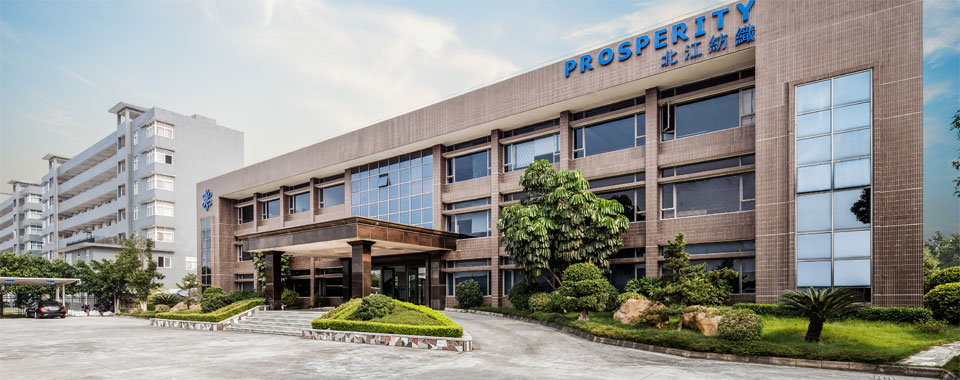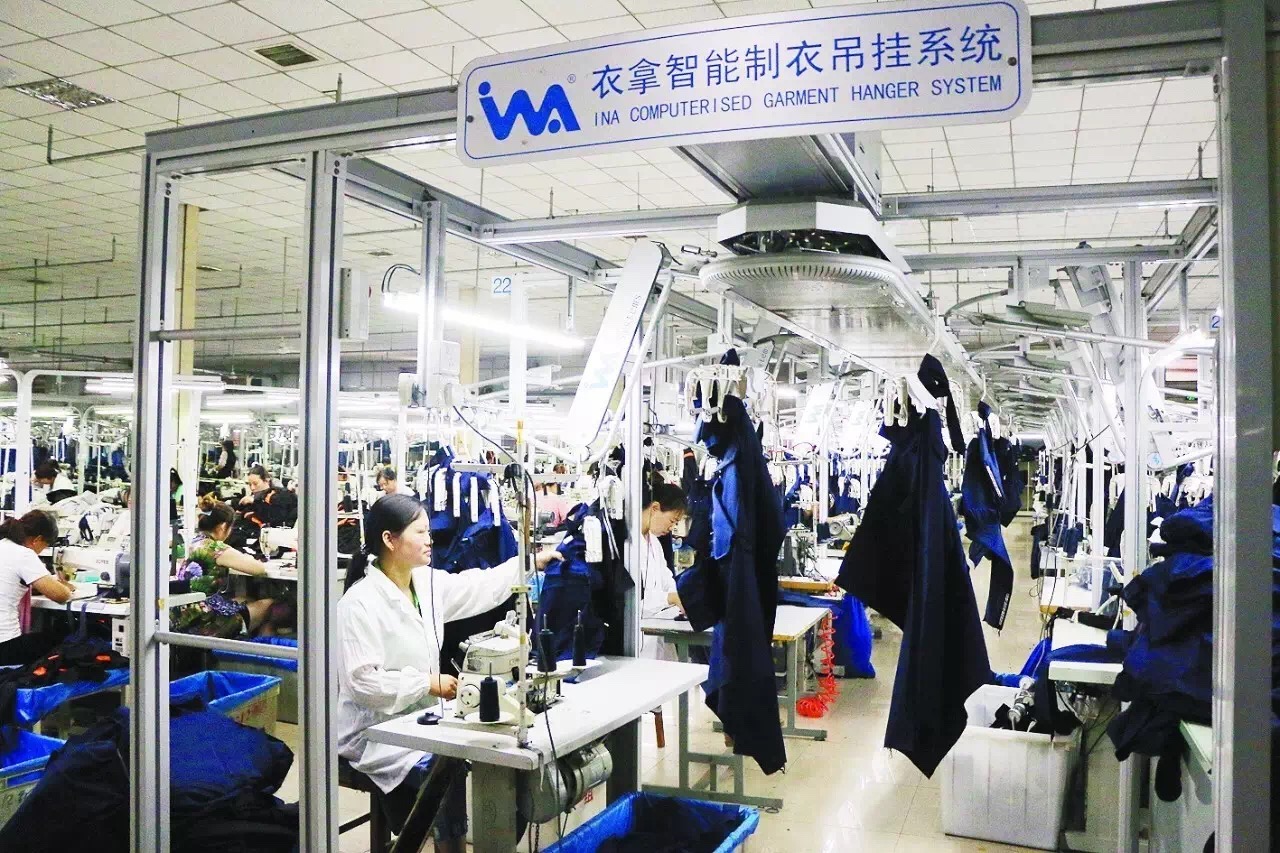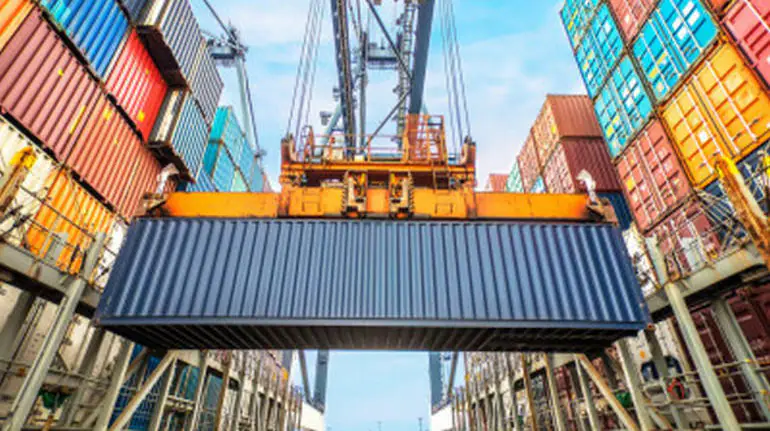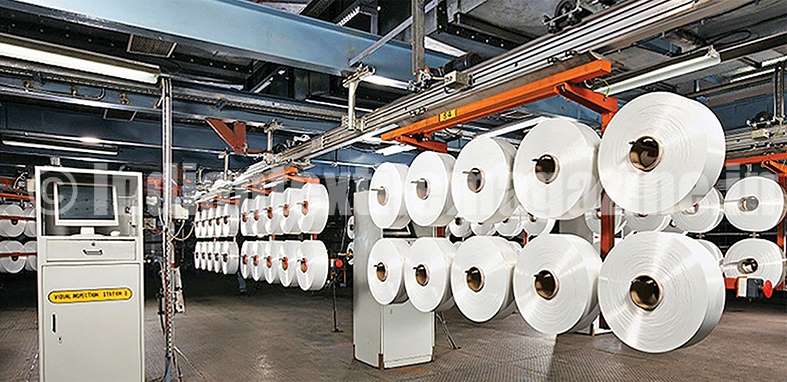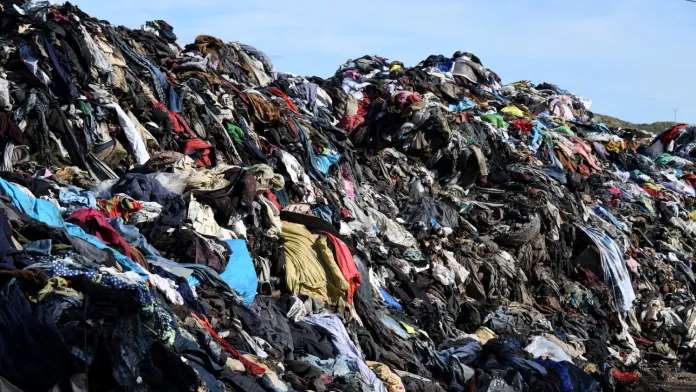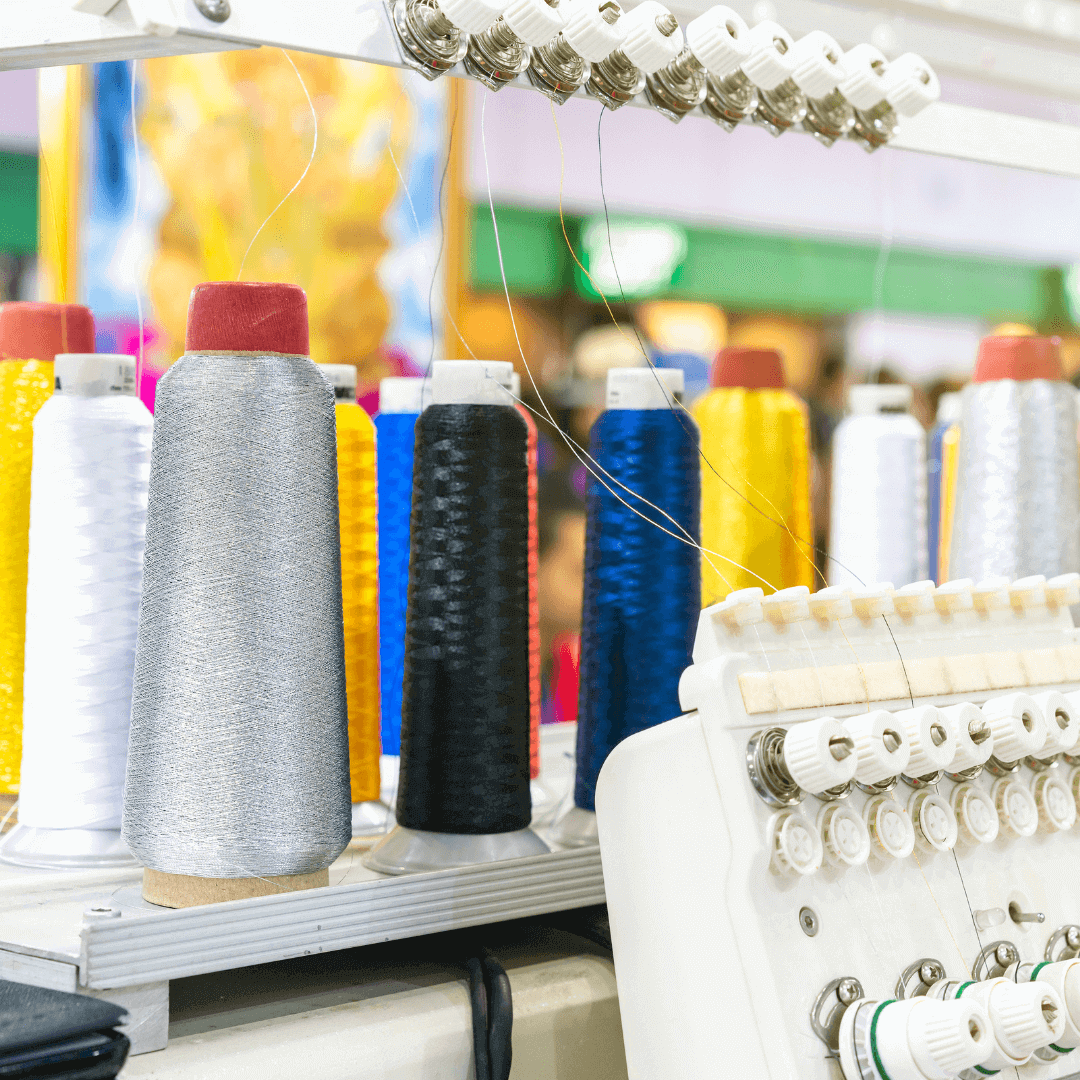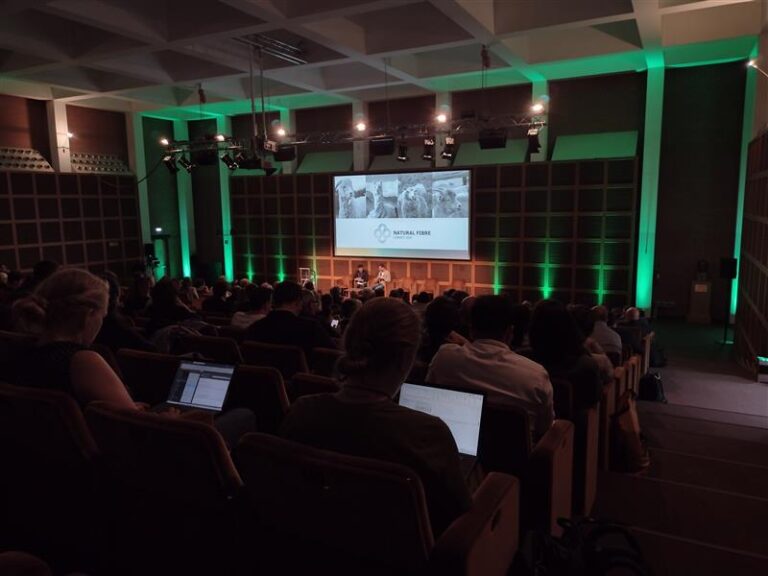FW
North India Section of Textile Institute, Manchester (NISTI), Department of Textiles Technology (IIT Delhi) and AIIMS are jointly organizing a one-day event – ‘Medical Textiles Conclave: An Interface between Medical and Textile Fraternity’ on December 6, 2015 at PHD House in New Delhi.
Applications of textiles in the medical sector (medical textiles) are diverse and vary from a single thread suture or a simple gauze to the highly complex composite structures used as permanent body implants and from simple masks and sheets to scaffolds used for tissue engineering. The huge requirement for these medical products is currently met through imports, as there are hardly any large scale domestic manufacturers in this segment while some products are not available at all. Thus, medical textiles - is an emerging sector of the textile industry which has immense scope and potential in the country.
While on one hand, the textile industry is looking for product diversification and value addition, on the other, the medical sector is looking for products that are affordable, accessible and meet the unique healthcare needs of the Indian population. In light of the above, this joint conclave is being organised with an aim to create an interdisciplinary platform for doctors, textile manufacturers, converters and researchers of medical textiles to comprehend the market potential and to explore the prospects for domestic production. The conclave will focus on the ‘need identification’ and potential for ‘Make in India’.
Bangladesh and the United States will hold the second round of TICFA meeting in Washington today in which Bangladesh will highlight the progress in terms of RMG sector reforms in a bid to get back GSP benefit in the US market. Both sides will also explore areas to boost trade and investment between the two countries.
Senior Secretary of Commerce Hedayetullah Al Mamun and Assistant US Trade Representative for South Asia Mike Delaney will co-chair the Ticfa Forum meeting. On November 25, 2013, Bangladesh and the US had signed the Trade and Investment Cooperation Forum Agreement (Ticfa) to establish an annual forum to identify and address obstacles to increasing bilateral trade and investment. The first Ticfa meeting was held in Dhaka in April last year.
Bangladesh has so far submitted its progress report twice in line with 16-point US Action Plan for Bangladesh, to the United States Trade Representative, the Chief trade negotiator for the Obama administration. However, Bangladesh is yet to receive any positive response.
“We are trying to get duty-free entry for garment items to the US,” Commerce Minister Tofail Ahmed had told reporters while talking about the country's preparations to attend the 10th WTO ministerial conference in Kenya from December 15-18, 2015.
According to Ahmed, Bangladesh is one of the highest tax paying nations in the American market and the country's garment exports to the US have maintained buoyant growth. The higher rate of duty and suspension of trade privileges could not stop the growth of garment exports to the US. Ahmed, who is also the coordinator for the least-developed countries (LDCs) in the WTO summit, will lead the 19-member Bangladesh delegation.
Ustr.gov
Mincom.gov.bd
Spinning mill owners in Ludhiana, Punjab have accused the state government of deliberately pushing them into a crisis by not reducing rates of value added tax (VAT) on yarn manufactured by them. VAT on yarn in many states is either nil or 2 per cent whereas for manufacturers in Punjab, it is at 6.05 per cent, so the cost of production of local manufacturers is higher by almost 6 per cent compared to the manufacturers of other states.
A meeting was held recently, chaired by industries minister Madan Mohan Mittal to discuss and find solution to the issues being faced by the yarn manufacturers in the state, where industrialists also informed the minister about how 10 spinning mills worth close to Rs 800 crores were forced to shut their units due to the huge difference between VAT rates of Punjab against the other states.
Highlighting the issue, Akhil Malhotra, MD Shiva Texfabs, said that the Punjab spinning industry is facing problems due to piled up debts, low orders and huge difference between VAT rates of Punjab and other states, which is even forcing the mills to shutter their units.
He demanded that the only solution to this problem is reduction in the VAT rate to 3 per cent. Yarn manufacturer Sanjiv Garg of Garg Acrylics also pointed out to the issue of rising imports of yarn in the state of Punjab from other states. He said that around Rs 10,000 crores worth of yarn has been imported to Punjab last year from states like Uttar Pradesh, Himachal Pradesh and Delhi, where VAT is nil. He also stated that cut down in VAT rates for the industry would also result in the excise and taxation department earning extra revenue of Rs 300 crores as these departments will not have to pay VAT refunds to the garment industry.
Punjab.gov.in
A name synonymous with textile education in India, R.C.D. Kaushik breathed his last on November 18, 2015 at the age of 80 in New Delhi.
After securing BTech - Textile Technology in 1956 from Delhi College of Engineering, he was among the four scholars from India, selected for the coveted scholarship in the US. He earned M.S. Textile Engineering from the Massachusetts University - Lowell Campus in 1961. He was honoured with F.T.I. and Eminent Engineer award by IEI. As a Director, he spearheaded Technological Institute of Textiles & Sciences, Bhiwani (T.I.T. & S) for four decades making it a name to reckon with in textile education. In his lifespan, he wrote over 100 research papers and as the head of TIT institute for 30 long years in the role of Director-Principal, he translated his vision and ideas into reality.
Kaushik has also been associated with several educational institutes and industry organisations. His recognition as a teacher, administrator and researcher of eminence is truly reflected by the fact that, time and again, the President of India, in his/her capacity as the visitor of IIT Delhi, deputed him as the Visitor’s Nominee on the various selection committees for senior faculty positions in the textile department of IIT Delhi.
The research, development and marketing body of the Australian wool industry Australian Wool Innovation (AWI) plans to significantly increase its investment in reproductive efficiency of Merino over the next four years.
Building on its investment of over $2.7 million in all facets of the Lifetime Ewe Management program over four years, AWI aims in new research and development opportunities to improve the reproductive performance of the Merino. As AWI’s flagship extension program, Lifetime Ewe Management (LTEM) has now directly influenced 20 per cent of the national flock. The 3,000 wool producers that have participated in LTEM have on average increased weaning rates by 10 per cent and reduced ewe mortality by 30 per cent. AWI now aims to increase the participation rate of LTEM to 50 per cent of the national flock by 2019, assisted by regional variants of the program.
A farm based course developed and delivered through Rural Industries Skill Training or RIST, LTEM involves woolgrowers learning to best match the energy requirements of animals with pasture production and supplementary feeding to maximise production and animal welfare. To help guide research opportunities, renew strategy and deliver further extension, AWI has brought on board renowned sheep researcher Dr Andrew Thompson as the new Program Manager of Reproduction for AWI.
www.wool.com
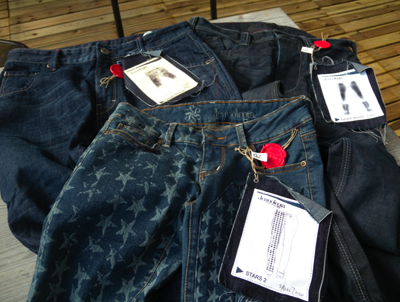
All about premium labels and partnerships...
With 20 offices around the world, Prosperity Textile sells all over the globe. However, 50 per cent of their sales come from Chinese customers, says Andy. He adds “Nearly 25 per cent sales is in the US and 25 per cent is in Europe. A leading denim maker in China, Prosperity has seen 50 per cent sales growth for the first half of the year. It is ranked among the good suppliers in the global denim makers”.
“Knit denim is a strong segment we are in along with our partner. We also have a small range of dyed yarn. The company has a long-term partnership with Lenzing and Invista. Moreover, the label ‘Prosperity’ is with all premium brands such as H&M, American Eagle. In China, we are approaching only big brands,” says Andy.
One of the biggest Tencel denim fabric makers in China, in 2014, Prosperity sold six million yards of it, informs Andy. Apart from this, they also use Invista fabrics such as Cool Max.
Speaking about their partnerships, Andy says, “Last year, Prosperity entered into a strategic partnership with a denim mill in Bangladesh. With this tie-up we can provide one to two million yards a month. Besides, the company has invested in Vietnam and the project should begin in 2017. This is an ambitious project, with a capacity of more than 10 million yards,” Andy informs. Since Vietnam’s labour costs are cheaper than China’s there is a lot of textile and yarn suppliers and garment makers across the value chain. Thus, Andy feels this is a good place to expand their Prosperity Textiles’ capacity.
A strong global presence
Andy says they are set to ramp up production “Prosperity is known for its fit and function. The company takes inspiration from active wear and sportswear combining them in denim. So denim can be worn as active wear making one feel cool in summer and warm in winter,” he explains.
Prosperity’s regular denim is 100 percent cotton, which is 40 percent of their range, while 60 percent is stretch or other fibres. In stretch, they have two collections “Coflex, or comfort flex which has 15 to 30 percent stretch. This is for men and women’s wear. The other collection with a higher stretch level is ultra-stretch, with 40 to 80 per cent stretch.” Besides, they also have bio-stretch, which is a four way stretch and more comfortable.
Prosperity uses innovative fibres in making its denim. One such fibre, ‘F2, Fit and Function’, can actually help absorb heat and increase oxygen levels. This has temperature management and helps cool faster in summer, while in winter the fibres help keep one warm. Currently, this fibre is being used for jeans wear and Prosperity is the only one with this product in the market.
Besides these innovations, the company also uses a lot of sustainable materials, informs Andy. “Tencel and recycled cotton and polyester. We also source eco-friendly material and use new technologies in dyeing. We recycle water to quality standards in an effort to save it. We also do laser washes and have partnered with Jeanologia,” says Andy. He says sustainable production is still a small portion of what they do, however, he believes this trend will grow.
R K Dalmia, Chairman, Cotton Textiles Export Promotion Council (Texprocil), has said that the Interest Equalization Scheme, previously known as the Interest Rate Subvention Scheme, on pre-shipment and post-shipment of garments is likely to boost cotton textile exports from India. For exporters for five years, the Cabinet Committee on Economic Affairs approved 3 per cent subvention scheme, with a retrospective effect from April 1, 2015 and this would be reviewed after three years. At a time when total exports have been declining for the past 11 months, this has come as a great relief to the industry as cotton textiles exports in India is set to revive with the scheme. Garment manufacturers will be able compete with other countries such as Bangladesh, Pakistan, Sri Lanka, and Vietnam in the Western world, which the new scheme would allow.
Dalmia said the scheme would provide the much needed boost to exports of cotton textiles as all categories of fabrics and made-ups have been covered under it. Exporters were keenly looking forward towards the announcement of this scheme as they were facing depressed market conditions and declining exports, he added.
Cotton yarns and merchant exporters however, do not fall under the scheme. Currently, cotton yarn exports are going through difficult market conditions, especially in China and this product should be covered under the scheme to enable yarn exporters to reduce costs and remain competitive in these difficult times, pointed Dalmia.
G7 countries are taking action to promote sustainable global supply chains by boosting labor rights, decent working conditions and environmental protection. Group of Seven (G7) member countries are Canada, France, Germany, Great Britain, Italy, Japan, and the United States.
An estimated 450 million people work in global supply chains. A multi-donor Vision Zero Fund will be created. The fund will support social dialogue and standards on occupational safety and health and fundamental principles and rights at work in global supply chains.
About 2.3 million men and women die every year from work-related accidents and diseases. An estimated four per cent of the world’s GDP is lost annually due to the costs of work-related accidents and diseases. The Vision Zero Fund will help prevent and reduce the number of workplace-related deaths, injuries and diseases. Gaining access to global supply chains can be an important part of strategies for poverty reduction. The fund will help make this route safer.
G7 has also expressed support for the implementation of the 2030 Agenda for Sustainable Development and its sustainable development goals, especially by working alongside developing countries. It also stressed the need to provide more information to consumers and to promote more responsible value chains.
The ‘Sustainable Development and Business Practices – 2015 Green Supply Chain Forum’ was convened jointly with Tianjin Green Supply Chain Center (TGCC), China Environmental United Certification Center (CEC), Institute of Public and Environmental Affairs (IPE) on October 22. Industry associations and 60 internationally known companies and over 200 guests from relevant government departments, and NGOs, included Environmental Defense Fund (EDF), Natural Resources Defense Council (NRDC), SEE Conservation, China National Textile And Apparel Council (CNTAC), China Electronics Standardization Association (CESA), Walmart, Apple, Microsoft, H&M, Marks & Spencer, Amazon, Unilever, Huawei, Lenovo, Panasonic, and Toyota took part.
The Head of the Steering Group of Tianjin Green Supply Chain Management Pilot Project, Jindu Cui, expressed his sincere wishes to the forum, hoping that it can be held on a timely, regular and customised basis henceforth, to continually enhance the demonstration effect and multi-stakeholders communication.
A plenary session and four afternoon sub-sessions around the themes of Green Procurement, Green Supply Chains and Green Consumption, Green Transformation of the Textile Industry and Green Supply Chain Innovation in the IT Industry were held at the forum.
Managing Director, TSC Greater China, Weidong Zhou said it was a great honour for TSC to hold the forum with partners and support the translation and publication of the Chinese version of the study. He pointed out that it is the crucial time for accelerating ecological civiliaation construction to achieve industrial green upgrade under China's 13th Five-year Plan for National Economic and Social Development in China. TSC would bring its research strength and product sustainability tools to actively promote sustainable development and supply chain management in China's manufacturing industry, Zhou stated.
Two Dhaka RMG factories have been pulled up by a review panel for unsafe conditions. ARA/Apparel Exports has been asked to suspend production partially by a review panel of factory inspections.
Safety faults were found by the panel and it advised the factory to go for detailed engineering assessment (DEA). Apart from this, Finery Limited in Dhaka was also asked by the panel to conduct DEA in next the 10 days. The panel warned that closure will be the option if the factory fails to fall in line. Both the garment factories are located in the city’s Darussalam area.
Structural flaws in the building were discovered by Accord and Alliance earlier and they asked for partial evacuation and DEA. However, the authorities refused to comply. Government review panel was sought for help by Accord and Alliance.
Syed Ahmed, Chief Inspector of the Department of Inspection for Factories and Establishment stated that the review panel members visited two factories and asked one to suspend production in the top two floors while another was to do DEA within 10 days. He added that the ARA/Apparel Export Ltd produces RMG products for EU retailers, while Finery Ltd supplies to the North American buyers.

